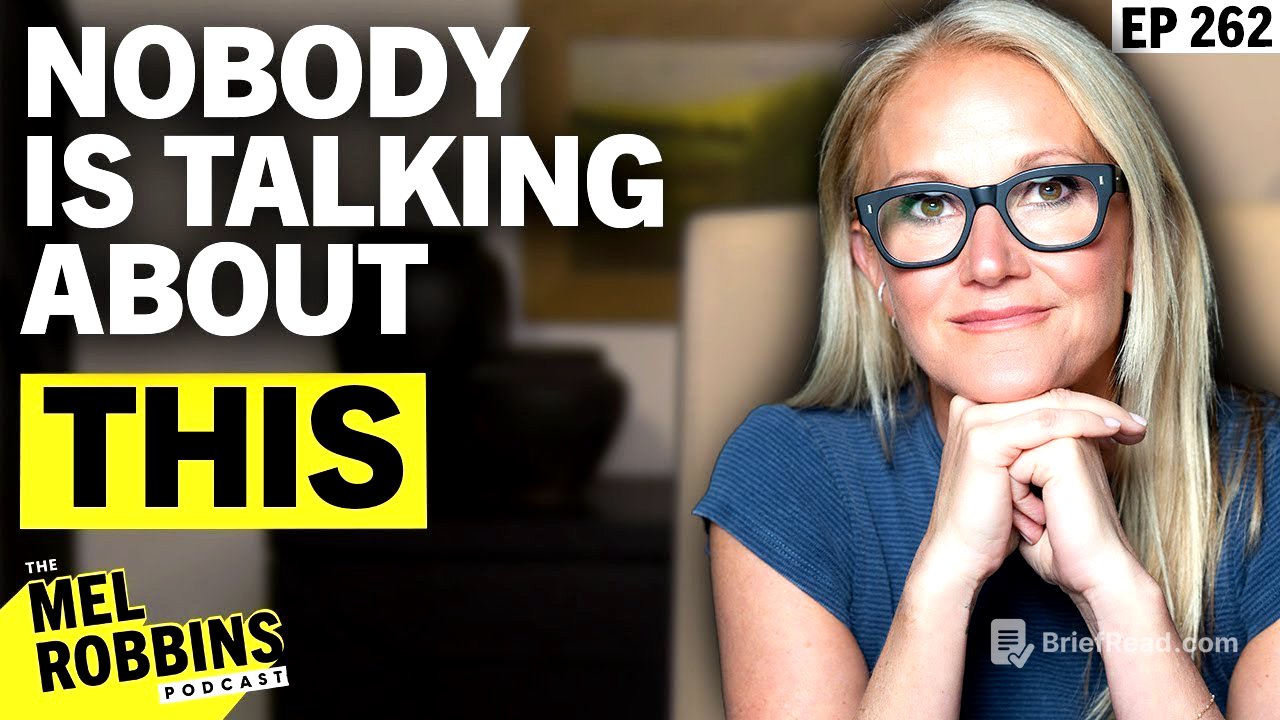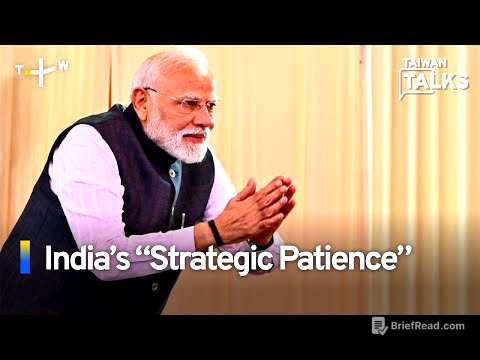TLDR;
This episode discusses the challenges of making friends as an adult and provides actionable strategies to overcome them. It emphasizes that the rules of friendship change after childhood, and understanding these new rules is crucial for building meaningful connections. The core concepts include recognizing "the great scattering," understanding the three pillars of friendship (proximity, timing, and energy), adopting a flexible approach using "the let them theory," and taking proactive steps to initiate and nurture friendships.
- The rules of friendship change after childhood.
- The three pillars of friendship are proximity, timing, and energy.
- Adopt a flexible approach using "the let them theory".
- Take proactive steps to initiate and nurture friendships.
Welcome [0:00]
Mel Robbins introduces the topic of adult friendships, highlighting that making friends as an adult can be challenging due to changes in life circumstances and expectations. She emphasizes that the episode will provide research-backed insights and practical advice to improve your social life and create meaningful connections. She welcomes new listeners and acknowledges that those who choose to listen are interested in improving their lives, particularly in the area of friendship. The episode aims to empower listeners by reminding them that friendship matters, they are capable of creating it, and the best friendships may still be ahead.
What The Rules of Adult Friendship Are [1:02]
The discussion centers on why making friends as an adult is difficult, pointing out a significant shift in friendship dynamics after the age of 20. Childhood friendships are typically easy because the conditions are structured: constant interaction with peers of the same age, shared experiences, and group activities. These conditions create an environment where friendships naturally form. However, these conditions change as people enter adulthood.
The Great Scattering [4:43]
After college, individuals scatter in different directions, leading to varied timelines and priorities. This "great scattering" disrupts established friendships, making it harder to maintain close connections. The shift from friendship being a group activity to an individual sport is often unexpected, causing people to cling to old friendships and feel isolated. These scatterings can happen multiple times throughout life due to various life changes such as new jobs, new cities, getting married, having kids, divorce or loss.
The Three Pillars of Friendship [14:49]
The three essential pillars for creating friendships are proximity, timing, and energy. Proximity refers to physical closeness and the frequency of interactions. Timing relates to being in the same stage of life. Energy is about having a natural click and shared interests. These pillars were naturally present in childhood but scatter as adults, making friendship creation more challenging.
The Rubber Band Rule of Friendship [32:51]
The rubber band analogy illustrates how friendships stretch when one or more of the three pillars (proximity, timing, energy) are not fully present. When all pillars are aligned, the rubber band is relaxed and tight. Changes in life circumstances can stretch the rubber band, creating strain. Clinging to the friendship and not allowing flexibility can snap the rubber band, ending the friendship.
Using The Let Them Theory With Friends [38:01]
The "let them theory" encourages a flexible approach to friendships, allowing people to come and go without taking it personally. It emphasizes focusing on what you can control ("let me"), such as being understanding, making an effort, and trusting when the energy feels off. The "let me" aspect involves taking responsibility for creating connections and acting with the belief that some of your best friends are yet to be met.
The Truth About Adult Friendships [40:48]
It addresses common questions about adult friendships, such as what to do when you're always the one making the effort or when friends don't reciprocate invitations. The key is to continue the "let me" approach, creating connections without expecting anything in return. It's also important to recognize that some people may not want to be friends, and that's okay.
Your Step-by-Step Guide to Making Adult Friends [52:50]
Practical steps to expand your social circle and meet new people include initiating contact by saying hello, using the coffee shop trick (remembering names and details of people you see regularly), and finding new activities that interest you. Going places alone and striking up conversations with people can also lead to meaningful connections. It's important to give it a year to allow friendships to develop.
How to Ask for Help (and Get It) [1:03:00]
For those struggling to make friends due to life circumstances, it's important to remember the people already in your life and reach out to them. Rekindling old friendships and asking for advice can be a great way to reconnect. There are also many free activities available, such as library events and lectures. The key is to go first and ask for what you need.
Your Best Friendships Are Still Ahead of You [1:06:29]
The episode concludes by encouraging listeners to adopt habits that foster connection, such as texting or calling someone you're thinking about and making time for friends. It reinforces the idea that the best friendships are still ahead and that taking a flexible, proactive approach will lead to a more fulfilling social life.









